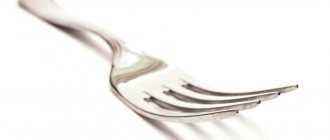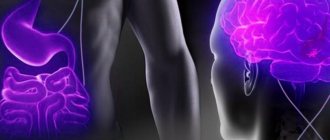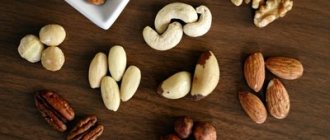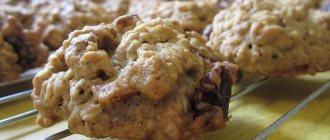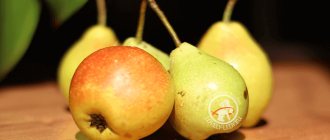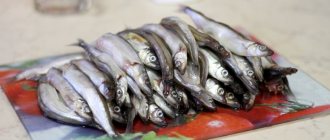What is the secret of youth and a beautiful figure? For some, a protein diet is an excellent way to achieve these and many other goals. Some people prefer short fasting days. But there is a category of people who have learned to fast correctly. Smart refusal to eat is a powerful strategy against premature aging and excess weight.
Fasting on water is a difficult, responsible step that only the most persistent take. Giving up delicious foods is not as easy as it might seem at first glance. If you decide to undertake such an experiment, you need to implement it correctly. In this article you will learn a lot of interesting things about fasting and make a decision for yourself about whether to start.
Rules for healthy fasting
Experts say that temporarily refusing food helps cleanse the body of waste, toxins, and fat deposits. This activates the restorative and protective functions of the body. There are several rules for healthy fasting.
Healthy fasting is the practice of not eating to improve your health.
- Cleaning. After refusing food, the body uses internal resources. 2 days before the start of fasting you need to drink choleretic and diuretic decoctions, and a laxative is taken the day before.
- Smooth entry. You cannot stop eating instantly, especially if a person is used to eating a lot. For this reason, the body experiences stress, and the feeling of hunger becomes more pronounced. 3-4 days before you need to eat vegetables and fruits, and later completely refuse food.
- Physical exercise. While fasting, you should not stop working out. At this time, you need to perform light sports exercises, for example, gymnastics, yoga.
- Supervised fasting. This applies to people with any chronic diseases. Medicines in the form of tablets, capsules or syrups will have an irritating effect, so it is better to replace them with injections if possible.
- Full sleep. The nervous system suffers greatly during fasting and it takes more time to recover. It is recommended to increase your sleep time by 2-3 hours in advance in order to prepare for a strict diet.
- Drinking fluids. During fasting, you need to drink up to 3 liters of warm purified water. This helps support metabolism and activate the removal of toxins from the body.
All rules must be followed to the maximum to get positive results from fasting.
For your information! The most common type of fasting is wet, or wet. Characterized by complete refusal of food except water. The amount of drink consumed is controlled by the person himself, but should be at least 2 liters per day. In addition, you will need to cleanse with warm water twice a day using an enema (up to 2 liters).
How to suppress and muffle: step-by-step strategy
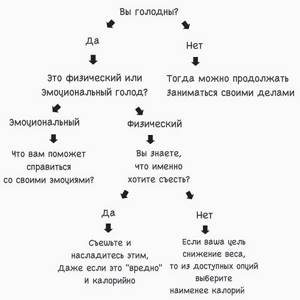
Let's figure out how to fight and overcome the feeling of hunger while dieting and losing weight?
- Ask yourself “am I really hungry?”. Are there physiological signs that you are hungry? Is your stomach growling? Do you feel weak or tired? Has it been more than 3-4 hours since your last meal? It's easy to tell if you're actually physically hungry or if you're eating for another reason. If you have answered these questions and determined that you are hungry, then eat.
If not, then you can calmly go about your business . Perhaps you were just distracted and didn’t immediately understand why, but your brain gave you a very convenient explanation that it’s almost time for lunch. That is, the pattern worked: I got distracted - oh, 2 hours have already passed since breakfast - I’m probably hungry! Take your time, check with yourself: “Am I really hungry?”
Or you just need to take a walk, switch your attention for a while - you are tired and looking for a reason to rest. It is also better to drink a glass of water. Thirst is often disguised as hunger.
If the answer to the question “Am I sure I’m hungry?” - yes, then move on to the next block.
- “What emotions am I experiencing now? ” If the hunger is emotional, then most likely you will not feel any physical signs - rumbling in the stomach, increased salivation. Are you sad or nervous? Did you just have a fight with someone? Are you worried about a deadline/homework/a fight with your loved one? Whatever it is, write down in detail what you feel and why you think you feel it.
Can you find a way to express the emotions you've discovered in yourself instead of suppressing them? For example, if you had an argument with your mother, can you call her and discuss it? If you're nervous about a project, can you work on it to feel on top?
If you can immediately correct the problem through a non-food-related activity, do it. It’s difficult to face such difficulties, and it’s always easier to load yourself into unconsciousness with food/cigarettes/alcohol/the Internet. But once you start looking back at your behavior and analyzing your feelings, it will become easier and easier.
Of course, it is possible, and more likely to be true, that you do not have the ability to resolve a problem or situation immediately, which causes you to engage in self-destructive behavior.
- Ask yourself, “Do I know what exactly I want to eat right now?” If yes, you know for sure that you want cranberries in sugar/dried bream/piece of Borodinsky, and nothing else can replace it. If you know that you can stop at 1-2 pieces, then it is best to calmly eat this product/dish and enjoy it.
If you know exactly what you want, but try to replace it with something else, then there is a high chance that you will eat both the substitute and the desired product (and get a double portion of calories).
If you have little idea what exactly you want, and you only have a general idea that you want something sweet or something crunchy, then, depending on your goal, choose either the healthiest option or the least calorie-dense .
Ask yourself the question: “What would help me cope with my emotions?” Maybe it's better to go out into the air or open a window? Do something? Hugging someone or just looking at photos of your loved ones?
If the hunger is physical, then we move on to the next block.
Here are some clarifying questions that will come in handy:
- Do I want to actually eat or just have a snack?
- What flavor do I want? Sweet? Salty? Spicy?
- What texture do I want? Something crunchy? Something liquid?
- Do I want cold or hot?
Fasting periods
How to fast properly to cleanse the body
The average duration of fasting is 2-3 weeks. The number of days increases gradually. Every day after the onset of an acidotic crisis, the body heals and cleanses itself.
About short-term fasting
Such fasting increases protective functions, helps to lose extra pounds, speeds up metabolism, and removes waste and toxins from the body. Scientists have proven that refusing food for 24 hours prevents premature aging. You should ask a nutritionist about how to properly survive short-term fasting, but it will definitely last from 1 to 7 days.

Short-term fasting increases protective functions, helps to lose extra pounds
Forty-day fasting
Long-term fasting continues as long as the person himself can stand it. It can last 20, 30 and even 40 days. A case of fasting for a period of 3 months was recorded. A forty-day fast is prescribed to cure serious chronic diseases and deep cleansing.
Important! You can begin long-term abstinence from food only with experience of this type of treatment.
Acidotic crisis is a core concept in healthy fasting. This condition occurs for 4-12 days during food refusal. After this period, unpleasant symptoms such as dizziness, headache, irritability, and increased fatigue disappear.
Risks if exiting incorrectly
Before you begin the process of cleansing the body with the help of hunger, you need to clearly study the features of exiting a period without food and strictly adhere to all the advice. This period is the main part of the fasting practice. If a person makes mistakes at this time, they can result in serious health problems later.
Those who have not yet experienced hunger should not stop eating for more than two days. In this case, no special solution is required; you only need to eat plant foods moderately for a day or two. The first meal should be as healthy as possible; fresh juices are suitable for this, as discussed above. Under no circumstances should you immediately switch to regular food, even if a person has been without food for only one day.
If the fast is prolonged, solid food can damage the mucous membranes that are “unaccustomed” to such nutrition. In addition, the stomach at this time will not be able to digest such food, and it will not be absorbed by the body. That is why you always need to start with liquid. If for certain reasons a person has eaten too much in the first days of leaving, he needs to induce vomiting as soon as possible.
The exit will be easier if a person begins fasting gradually, practicing a plant-based diet and eating in moderation some time before the start of the process.
In order not to harm the body during prolonged hunger, both the period of abstinence from food and the subsequent exit should be carried out under the supervision of a specialist, following his advice.
Both during the period of fasting and during recovery from it, some unpleasant sensations may develop. May cause headache and dizziness , feeling of chilliness or heat, constipation or diarrhea . As a rule, such sensations disappear on their own.
Stages of fasting
Fasting for weight loss
Hunger strike at home is recognized as an effective method of treating many diseases. The procedure normalizes metabolism, improves the functioning of the cardiovascular system and improves immunity. There are several stages of fasting.
Preparation
2 days before the start of fasting, it is recommended to follow a certain diet. Preparing for famine includes:
- first breakfast - 3 pcs. unsweetened cookies, 1 tbsp. fresh pumpkin or carrot juice;
- for second breakfast 1 soft-boiled egg, 1 tbsp. lemon or orange juice, a small sandwich with low-fat cheese;
- for lunch oatmeal with minimal salt content in water, 1 tbsp. weak broth with vegetables and croutons;
- for an afternoon snack - 200 g of strawberries, strawberries, raspberries, currants or 1-2 pears, apples;
- dinner should consist of a small amount of fruit or vegetable salad with olive oil, 1 tbsp of still mineral water.
Preparation for fasting is not that difficult; if you go into it correctly, then a positive result will not take long to arrive.
First stage
It is called food arousal. Its duration is 2-3 days. A person notices a headache, sleep disturbance, a strong feeling of hunger, weakness, and a sharp reaction to food. With a high body mass index, weight can decrease by 1-2 kg per day.

With a large body weight in the first stage of fasting, you can lose 1-2 kg per day
Second stage
The development of increasing ketoacidosis is noted, which lasts up to 7-9 days. This stage is characterized by dulling of hunger, the appearance of odor from the oral cavity, a white coating on the tongue, and a “metallic” taste. In the presence of chronic diseases, exacerbation is possible. A person needs to limit physical activity, spend more time in clean air and drink alkaline mineral water. Weight is lost from 0.3 to 0.7 kg per day.
Third stage
Compensated ketoacidosis lasts up to 14-20 days. The human body adapts to complete fasting on juices or water, manifestations of diseases disappear, daily loss of body weight is up to 0.5 kg.
Note! Treatment with hunger is absolutely contraindicated for type 1 diabetes mellitus, malignant tumors, liver cirrhosis, pancreatitis, tuberculosis, lack of body weight, renal failure, etc. It is not recommended to resort to therapy when carrying a child, breastfeeding, type 2 diabetes, pathologies of the cardiac system, hypotension , urolithiasis and cholelithiasis.
How to start fasting
It is absolutely normal that a beginner does not know where to start.
Many people make a serious mistake - they simply stop eating without any preparation. Such a sudden refusal to eat is very difficult to accept, and the risk of relapse is high. A person is neither psychologically nor physically ready for fasting.
To enter fasting correctly, you need to prepare in advance.
Psychological attitude
Without the right mindset, you can quickly give up on your new venture. Simply because at a critical moment you will not have the motivation to survive without food. Willpower alone is not enough - it must be based on something.
First of all, you need to understand the purpose of this event. Why are you starving? What will you get in the process?
Just to lose weight, you can limit yourself to diets. And therapeutic fasting is usually carried out to cleanse and heal the body. For spiritual cleansing.
You must be confident in your decision.
Preparatory procedures
It is very important to enter fasting correctly. This way you can avoid or reduce discomfort (headache, nausea, weakness).
- Eliminate all unhealthy foods from your diet: sugary water, fast food, processed foods, sweet, starchy, fatty and spicy foods, alcohol.
- Eat simple and light foods: vegetables, fruits, cereals.
- Avoid frying foods - only raw or boiled foods.
- A week before fasting, give up eggs, dairy products, fish and meat dishes.
- Stop smoking. Or at least reduce the number of cigarettes in the preparatory period, but do not smoke on the day of cleansing.
- Try to drink more water.
Set aside free days for fasting, when you can go nowhere and do nothing all day. You will be very weak the first time, so it will be helpful to take a nap in the middle of the day to conserve your strength.
Starvation
You need to start fasting in the evening. Throughout the day, eat light and simple food, and then refuse dinner. It is advisable to do a cleansing enema to remove all toxins from the gastrointestinal tract. Applies to those who are prone to constipation.
Write down your daily routine during fasting - this will make the process easier.
Many fasting people in everyday life refuse to eat after 18 hours. So it’s absolutely natural for them not to have dinner, and it’s better for you to go to bed early so as not to suffer from hunger.
Sample plan for fasting:
- Awakening. A glass of water on an empty stomach. You can add a laxative or give an enema.
- Simple exercise - yoga, walk, breathing exercises, etc. It is very important to maintain some activity while fasting.
- Water procedures in warm water.
- Walk in the fresh air.
- Time for any activity that will distract you from thoughts about food: a book, a movie, a computer game, puzzles, or learn a new hobby from our list.
- Daytime sleep.
- Usual household chores: cleaning the house, solving procrastination, working outdoors, etc.
- Taking a shower or bath.
- Activities to relax before bed that don't involve your brain.
- Dream.
At the same time, you need to drink a glass of water every hour.
Beginners should limit themselves to a one-day fast for the first time.
The right way out
Even one day of fasting can bring changes to the digestive system. She is not able to immediately digest the usual volumes of heavy food. So if you don’t want to end up in a hospital bed and suffer from abdominal pain, take time for a smooth exit.
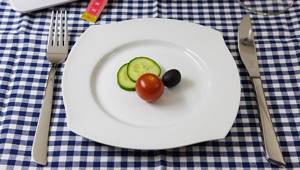
The longer the fast lasts, the longer the recovery.
You need to go out with light food in small quantities. Start with freshly squeezed vegetable juice. Add a small portion of salad without spices or dressing.
In the future, add 1-2 light products every day. Last but not least, you should return heavy foods: meat, fish, dairy and eggs.
It is better to completely remove fast food, processed foods, sweets, flour and carbonated drinks from the diet. Especially if you plan to repeat therapeutic fasting in the future.
Features of fasting
Water fasting for 7 days
The drinking diet is a nutritional principle that consists of consuming liquid foods. Some fans of fasting add juices, dairy products, honey, and berries to their diet.
- Juice fasting. It is worth using natural drinks from unsweetened fruits, such as apples, grapefruit, orange, lemon. Grapefruit additionally helps to get rid of extra pounds. All freshly squeezed juices are diluted with still water in equal proportions.
- Kefir, yogurt. Fermented milk products should be low in fat without fillers, sweeteners or colorings. Milk, which is poorly absorbed in the body, is completely unsuitable for fasting.
- Honey. In some types of diets, you can drink water, tea with lemon and honey. These products improve immunity.
- Watermelon. Many people prefer to arrange fasting days using berries. The high sugar and water content helps satisfy hunger. Throughout the day, watermelon is consumed, the weight of which is 10 times less than a person’s body weight. The diet lasts no more than 3 days.
Note! Your doctor will tell you how to fast correctly and will rule out any contraindications according to your body’s characteristics.

The drinking diet is a nutritional principle consisting of the consumption of liquid food
Benefit

Fasting on water, lasting from 1 day, is a serious stress for the body. Therefore, it should be considered from two sides. Speaking about positive effects, the following positive effects are distinguished:
- Rapid weight loss. First, excess moisture comes out, and then fat burning processes are activated (it is the internal fat layer that goes away).
- Strengthening the immune system – improving the defense of the body and skin.
- Reducing the likelihood of autoimmune diseases.
- Rejuvenation – stopping the aging process.
- Gradually disappearance of unpleasant snoring and apnea.
- Improving the condition of nails and oxen.
- Improving the functioning of the genitourinary system.
- Restoration of reproductive functions.
- Normalization of blood sugar levels.
Foods that satisfy hunger
Some foods help satisfy hunger for a long time without negatively affecting the body and figure.
- Eggs. It is better to replace breakfast cereals with scrambled eggs containing protein, iodine, biotin, riboflavin, and selenium. If you eat a few eggs in the morning, you won't feel hungry until lunch.
- Fats. It is recommended to replace low-fat foods with healthy fats. It is better to add fat cottage cheese, cream or milk in small quantities to your favorite recipes.
- Avocado. The fruit contains fiber, nutrients, and healthy fats. A piece of avocado added to a salad will keep you feeling full for a long time.
- Almond. The nut consists of more than 15 nutritional components, ideal for a small snack.
- Apple. The fruit has a beneficial effect on the entire body; in addition, the sweet fruit prevents the feeling of hunger.
- Dark chocolate. If you have an irresistible craving for sweets, you should give preference to a few pieces of dark chocolate. It must have a minimum of 75% cocoa content.
- Grass. You can add chamomile and mint to tea. This will prepare the body for further stress.
All of the above products allow you to delay eating, satisfying your hunger for a while. It is strictly forbidden to use soda.
Water fasting for weight loss
What is a water fast?
A water fast involves drinking 1-2 liters of water per day for five days. This will give your body a chance to rejuvenate and flush out toxins that have accumulated in your body over time.
The most important aspect of water fasting is that your brain will be more alert and you will become super focused on what you are doing. You may feel tired and need more sleep. But overall, it will show good results, provided you do it correctly, with the help of your doctor or nutritionist.
Is it possible to drink coffee while fasting?
The health and beauty of a person directly depends on the condition of the body. The body tends to accumulate decay products, food debris, and toxins. Fatigue and impotence interfere with the absorption of vitamins, minerals and other beneficial substances. During fasting days, you can drink coffee and tea. Drinks help avoid dizziness and nausea.
This rule is only suitable for short-term fasting days if you want to lose weight. During a therapeutic fast, you can only drink water, that is, you need to completely abstain from other liquids and foods.

You shouldn't drink coffee while losing weight
Symptoms of hunger
Hunger symptoms vary from person to person. The main symptoms reported are:
- Fatigue
- Abnormal attitudes and behavior towards food and eating
- Poor emotional and social functioning
- Poor concentration
- Dizziness
- Reduced rate of weight loss
- Impaired cognitive functions such as poor concentration
- Gastrointestinal discomfort
- Cold intolerance
- Drop in blood pressure
Enema during fasting and fasting without enemas
Many people are not as afraid of fasting as they are of having to do a cleansing enema. The procedure is mandatory, especially for beginners. It is recommended to learn how to do it at the preparatory stage. Short-term proper fasting (1-2 days) does not imply its use, because the human body does not have time to rebuild itself in such a period and they will not bring improvement in well-being. During prolonged fasting, the procedure helps cleanse the intestines of feces. Often by the third week, fecal stones are released and rejected.
The frequency of enemas during short-term fasting is up to 10 days, daily up to 2 times a day. For long periods, 1 procedure is prescribed 2 times a week after the development of an acidotic crisis. In case of severe intoxication and poor condition, cleaning is carried out 2 times a day. The basic rules for cleansing the intestines are the mandatory use of enemas during fasting at the initial stage and their use according to the needs of the body in experienced ones.
Output Features
The first product that is recommended after leaving is juices from vegetables and fruits. At first they are diluted with water, later they are consumed undiluted. Such juices are consumed in small quantities every two hours. The next category of products that is introduced into the diet is fermented milk food, as well as porridge. Next, you can gradually introduce nuts and seeds into the menu. But it is better to abstain from meat food for as long as possible in order to increase the positive effect of fasting.
Since recovery processes in the body last a long time, up to 3 months, during this period you should try to eat only high-quality food. The basis of the diet during this period is vegetable and dairy dishes.
About sports and bodybuilding while fasting
In bodybuilding, to gain physical shape or prepare for a competition, an athlete goes through two phases - bulking and cutting. In the first case, you need to eat the most high-calorie foods and gain fat mass. During the drying period, sports supplements and medications are used, cardio training is carried out and high-calorie foods are limited. These phases negatively affect the human body, so some athletes resort to periodic healthy fasting. This method not only improves health, but also helps to gain muscle mass without a significant increase in fat mass.

Bodybuilders also resort to short-term healthy fasting
Bodybuilding involves two ways to implement intermittent fasting during sports training:
- reducing the time you eat each day;
- complete refusal to eat for 24 hours.
With the right approach, daytime fasting allows you to effectively lose weight without losing muscle mass or gaining excess fat.
Water fasting
So, we have reached the very process of one-day fasting on water.
Focus on your intention
Pay attention to the topics or questions you want answered. Focus on exploring yourself, exploring an idea, touching the core of your spirituality, or simply losing yourself in a state of directed discipline. If you are committed to detoxifying your body, use this goal to decisively confront the feeling of hunger.
Drink water
Drink at least half a liter of water every two hours. Water fills your stomach, restores your energy, and dilutes the stomach acid that makes you feel hungry. However, you should not drink too much water, as this may make you feel nauseous.
Keep yourself busy
Inactivity and boredom may lead you to think about food. Instead, keep yourself busy with something that is exciting but not physically exhausting. Reading, writing, meditation, slow yoga movements, working on your computer, walking in the woods, watching TV and going for short runs are all good ways to keep yourself occupied while fasting. Avoid activities that require significant energy expenditure, such as strenuous physical work, heavy lifting, or running long distances. Significant physical activity will burn a lot of calories and make you overly hungry. (4)
- Avoid thinking about food. Try not to waste time on food - look at photos of food or smells of food.
Stay strong
If you suddenly feel like giving up, remind yourself why you started fasting. Practice discipline. Convince yourself that your hunger will not last forever. And besides, if you stay strong now, the rewards can be much greater than if you give up.
- Towards the end of your fast, you will likely feel tense and exhausted. Take a nap if possible, or let visual media take over your mind. Immerse yourself in the world of movies or video games - it can work wonders in such a situation.
Tips on how to survive hunger and not break down
Fasting is stressful for the entire body, both physically and emotionally. There are several ways to help you avoid breaking down.
- Motivation. Basically, one or another motive prompts a person to go on a diet. And it is better that they appear when entering fasting. For some, this is a desire to improve their health, while others want to lose extra pounds and fit into the clothes they like.
- Emotional support. After a couple of days of fasting, a person begins to be tormented by thoughts about food and whether there is any point in such treatment. One of the conditions for achieving the goal is psychological support from family, relatives, friends.
- Drink. Most often, a lack of fluid in the body is mistaken for a feeling of hunger. A couple of sips of still water will help verify this, after which hunger will be muffled or completely disappear.
- Distraction from thoughts about food. During fasting, people complain that they often think about food. Hobbies and favorite activities will help change the situation. Shopping, watching a TV series, a movie, reading, learning a language, embroidery and much more.
- Aromatherapy. Essential oils have a beneficial effect on the human nervous system and emotional background. Some of them allow you to feel full without eating.
- Gifts for yourself. If motivation doesn't help you cope with the desire to snack, it's better to set several small goals. After achieving each of them, you can treat yourself to a gift. This is a trip to the salon, buying a souvenir, jewelry, etc.
All of the above methods will help you understand how to survive hunger.
Healthy fasting is not just a diet for losing weight, it is, first of all, a way to gain energy, boost immunity and improve the health of the whole body. Only the right approach to this type of home treatment will help achieve a positive result.
Kinds
Physiological
What is hunger anyway? Hunger (in its physiological meaning) is a feeling of need for food . This is your body's signal that there is a lack of nutrients for the body to function properly.
Everything is simple here: the body needs energy - it sends signals about it - you eat. Physical hunger on a diet indicates the bottom: you are not eating enough. Such hunger is very difficult to overcome, because it is the body’s natural protective reaction to stress. What quenches it best? Food. Anything to do with it. The main thing is not to get pleasure, but simply to provide the body with energy.
A typical physical hunger scale used by psychologists looks something like this:
- The highest degree , you're about to faint.
- Exhaustion , you feel physically sick from hunger.
- Severe hunger . Good people, give me something to drink, I’m so hungry!
- Moderate hunger. I could eat, but I can still be patient.
- Mild hunger . I would like some kind of snack.
- Neutral state. I’m not hungry, but there’s no feeling of fullness in the stomach either - optimal state!
- Feeling of slight fullness in the abdomen. Satiety, but the feeling that you want a little more.
- Feeling of moderate satiety.
- I was very full . All. I don't want to and can't do it anymore.
- Ate too much . Feeling of discomfort in the stomach, you don’t want to move.
- I overate myself . Don't point your finger at me - I'll explode!
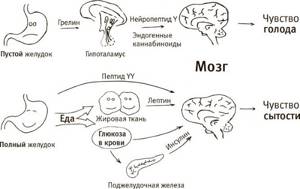
Psychological emotional

However, hunger does not always arise as a logical signal based on the needs of the body. Sometimes hunger is based on emotions. If the hunger is emotional, then most likely you will not feel any physical signs - rumbling in the stomach, increased salivation. But you may catch yourself feeling bored, sad, or angry.
If the problem of excess weight already exists, then, first of all, you need to understand its cause and only then apply the most suitable method. Often, negative emotions caused by the awareness of one’s fatness prompt one to look for different ways to lose weight, including prompting one to follow a diet.
All this, in turn, can provoke new negative emotions leading to overeating, and the inability to cope with this problem gives rise to further negative emotions and a vicious circle is created.
To get out of this vicious circle, it is important to understand that you need to lose weight only for yourself, slowly and gradually, changing your eating habits . Then the body will be able to get used to the new weight and consolidate it.
Before getting rid of extra pounds and cellulite, you need to learn to love and respect yourself. Watch yourself and analyze everything that happens to you.
You need to understand yourself and the reasons for being overweight!
Emotional hunger is a huge problem. Why do we experience it?
Substitution of love and communication
When the stomach is filled with food, other needs are unconsciously blocked and fade into the background. This method is used by people who may lack physical contact. This addiction especially often occurs when it comes to sweets!
Its roots creep into childhood: often parents strive to satisfy the child’s needs for love, affection, attention with the help of food, and not with the help of conversation, play, etc. Food begins to replace communication with loved ones. After all, it’s easier to give your child another candy instead of giving him time.
In adulthood, a person feels comfortable and strives to contact others only if there is a feeling that his stomach is full of food.
We discussed this problem in detail in the article “Sweet Alcoholism” , we recommend that you read it.

The first signs of such a problem cannot be neglected: while they are small, the situation can be easily corrected. Over time it will become more and more difficult. Eat regularly, little and often. Try these eating behaviors:
- 5-6 meals a day so as not to feel hungry and not to snack.
- Eat slowly, slowly and thoroughly.
- Eat with pleasure - food should bring joy to life . Enjoy what you eat.
- Turn your meal into a small celebration . There is no need to discuss politics and other sad topics while eating. A good mood and pleasant atmosphere while eating are extremely important.
- Eat light, live, natural foods. Remember about healthy, rational nutrition .
- Ask yourself: “Do I really want this because my body needs energy or because I’m sad/lonely/bored? What problem do I want to solve with this specific food ?
As a sedative
In stressful situations, we experience internal tension. If everything is not in order at home or we are busy with work, during this difficult period it is easy to give in to temptation and comfort ourselves with food. It turns into the best medicine for mental adversity.
We discussed this problem in detail in the article “Dopamine addiction: how to relieve cravings for food, cigarettes, alcohol. Compulsive overeating” , we recommend that you read it.
How to distinguish and overcome?

In fact, this is quite easy to determine. Here are 6 points to help you.
- The most important thing to understand is that psychological hunger lives in the head . Emotionally based passions for food begin in the head. Physical hunger (figuratively speaking) lives in the stomach . You recognize it by the sensations in your stomach. You experience suction in the stomach, rumbling, emptiness and even pain in the stomach if the hunger is physical.
- Often emotional hunger manifests itself as cravings for specific foods. You are dying not just to eat, but to eat something specific: a certain brand of candy, buckwheat, pickles, or the same ice cream as in childhood. When hunger is psychological, then you simply need to eat this specific product or dish. The first thing you should do is eat “this”.
Physical hunger is characterized by liberality towards various foods or dishes. Yes, there are tendencies towards certain foods, but they are flexible. You agree to have dinner, if not chicken, then fish, the main thing is to eat. The first thing is to eat at least something .
- Psychological hunger takes you by surprise. One minute you didn’t care about food, and a minute later you’re dying of hunger. Hunger increases from zero to squall levels very quickly. He pushes you to eat, eat, fill your belly right now!
Physical hunger will attack gradually . The stomach growls or gurgles. The feeling is that the stomach is empty and clean. A few hours later, my stomach is already growling. Physical hunger gives increasing signals that it is time to eat. It is important that you eat in the near future, and not right now.
- Often psychological hunger is associated with an unpleasant emotion. The child is having problems at school, her husband is sick, and she is not happy with the reflection in the mirror. Psychological hunger occurs due to a situation that disturbs your mental balance and causes stress.
Physical hunger does not particularly depend on mood, it arises from physical need . It appears because more than 5 hours have passed since your last meal, and not because someone offended you.
- Absorption of food through emotional hunger often occurs through mechanical, thoughtless movements. It's like someone else's hand is cutting a cake and bringing it to your mouth. Or you may not realize that you ate an entire package of dumplings at once. This one won't go away even when you're full.
Overeating is born from the desire to cover up unpleasant emotions (again the article Dopamine Addiction , read if you have profiled
